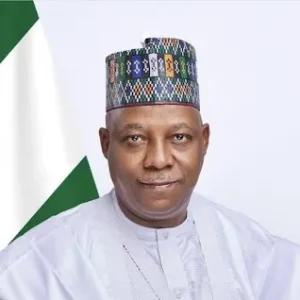
By Habibat Aliu
Stakeholders in the Nigerian Stock Market have stressed the need for the new administration to focus more on policies that would help tackle the nation’s huge infrastructure deficit, especially the issue of power, as well as maximise potential in leveraging African Continental Free Trade Agreement opportunities (AfCFTA) to alleviate poverty.
Speaking on Nigeria’s economic outlook at a press briefing in Lagos, an independent tax and business advisory firm, Andersen said Nigeria has continued to lag behind meaningful economic indexes due to failure to adequately address its infrastructure challenges.
For instance, Partner and Head, of Business Advisory Practice, Andersen, Lateef Surakatu said Nigeria’s investment in infrastructure is very low both in the private and public sectors.
He said the government has budgeted below the yearly requirement in the last three years, an indication that the country is still far from reaching its infrastructure development target.
With the National Integrated Infrastructure Master Plan (NIIMP), $2.3 trillion is the investment required to close the infrastructure gap in Nigeria from 2020 to 2043.
Vice President, Prof Yemi Osinbajo had also stated that the Reviewed National Integrated Infrastructure Master Plan (2020-2043) and the National Development Plan 2021-2025 estimated the current nation’s infrastructure stock to be between 30-35 percent of the GDP in 2020 against 20 per cent of the GDP recorded at the inception of this administration in 2015. This is still a far cry from the estimated target of 70 per cent envisaged in 2043.
According to Surakatu, Nigeria needs pragmatic and effective infrastructure funding to maximise its potential to grow rapidly and remain competitive in the global market.
“Some people are sceptical of the benefits of AfCFTA to Nigeria. There are gains from the synergy but ‘Nigeria needs to put its house to maximise this opportunity,” he said.
Also speaking, Partner and Head, Transfer Pricing, Joshua Bamfo said the incoming government should create opportunities for businesses to leverage benefits in AfCFTA by addressing the issue of power which is the major cost that goes into production.
Furthermore, he said Nigeria needs to increase its local production capacity; noting that lack of productivity was responsible for the country’s stifling economic progress.
Bamfo said to address the nation’s abysmal growth, there is a need for policies aimed at propelling long-run productivity for sustainable real sector development.
In addition, he said export promotion needs to be prioritised, adding that concerted effort is needed to minimise all bottlenecks and bureaucracy associated with the exportation of finished goods by Nigerian firms especially the Small and Medium Enterprises (SMEs).
In 2021, domestic merchandise exports from Nigeria amounted to over N18.2 trillion, around $43.8 billion. Compared to the other periods under study, this was the highest value while imports within the same period stood at $52.19 billion, a 46.65 per cent increase from the 2020 figure.
“Nigeria can improve by making sure we can produce and process locally. Every business wants to take advantage of this because business managers want to reduce the cost of production and increase revenue. Cost of production is cheaper if you are close to the resources.”






